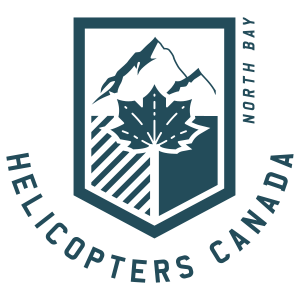Do Your Research – Getting your helicopter pilot licence: What you need to know before you apply
Thinking of becoming a helicopter pilot? We can’t say we blame you! A career in the air abandons the mundane 9-5 and enters a world where every day is dynamic, exciting, and often adventurous. What is the opposite of all that? Sitting at a computer, researching all of the options for training and trying to make the right choice. We know it is a daunting task so we asked Helicopters Canada Student Recruiter and Line Pilot Mackenzie Wilson to share her tips on everything you should think about while doing your research.
Get off Google and Get on a Tour
Perhaps the most important thing you can do is to see the school for yourself; to meet the instructors and administrators that will be helping you achieve your licensing goals. Your tour should include visiting the facilities to see all there is to offer and the standards of training. Ask to look at the aircraft they fly and take a discovery flight with an instructor if possible. Take lots of notes and pictures, be prepared with a list of questions, remember the names of everyone you meet. You should talk to present/past students about their experience at the school. And don’t just stop at one flight school – do your research and even if you think your heart is set on one place, you will learn a lot if you visit other options too, and it’s always beneficial to meet other professionals and students in this small industry.
Diversity in fleet
Even though a helicopter is the same make, model and year, there are always slight differences that can set them apart. Learning to fly on a variety of aircraft will familiarize you with their nuances. And in that moment when you get a new job and hop into the machine, one you have never flown before, you will feel confident and prepared for all of its minor differences. Also, having various options for machines minimizes your chances of being grounded during your training. The last thing you want is to be waiting around to complete your hours while a machine is down for maintenance (routine or otherwise).
Diversity in instructors
All students have unique learning styles so having multiple instructors with different personalities means you will learn in new ways from a variety of teachers. And bonus, if your “usual instructor” is away, you won’t miss out on a training flight.
Pick a “Triple A” Location
Location of the school is important for 3 reasons: airport, airspace, and accommodation.
AIRPORT – A flight school could be anywhere like a small private airport, the middle of a field, or a City Centre. Ideally, you want to look for an airport that’s just busy enough to develop good radio skills and heightened situational awareness, but not so busy that you have to sit on the ground in your running aircraft and wait for traffic to clear so you can fly.
AIRSPACE – You also want quick access to both Controlled airspace = procedural practice and uncontrolled airspace = flying freedom.
ACCOMMODATION – If you have to move closer to your flight school look for a private, quiet, safe place close to campus for early mornings and late nights flying, and last minute flight schedule changes. Ask your flight school if they have student/crew housing or residence options so you can be around other students for studying.
In-House Delegates gives you in-house advantages
The last and most important step to get your pilots licence is your flight test conducted by an Authorized Transport Canada Examiner. TC delegates certified flight instructors who can conduct a flight test in-house (Designated Flight Test Examiner). If your flight school has a DFTE you will be at an advantage because you will have done the same flight training with them that you will be tested on and you will be comfortable flying with them and familiar with what they are looking for. Plus, they are always on premises if you have questions leading up to your flight test. And, there will be less of a wait time to reschedule if your flight test gets cancelled from uncontrollable factors (i.e. weather, maintenance, illness, etc.).
Student Body – Bigger doesn’t always mean better
When it comes to flight schools, the more students enrolled in your same flight training program means more people to share resources with: aircraft, instructors, learning materials, daylight, and good weather. You don’t want to be just another number when it comes to scheduling the flight line.
A smaller student population means a more intimate training experience and individualized attention from your instructors.
We hope these tips will help launch you into your research confident and prepared to find the school that is best for you. We don’t like to see anyone suffer from fear of a better option and being diligent and thorough will ensure that you explore all options and find your perfect match.
If you are ready to start the discovery process, reach out to Mackenzie and the Helicopters Canada team today. We wish you good luck on your journey!

These contents are masterful, you’ve done a fantastic job on this subject!
Oh my goodness! Amazing article dude! Many Thanx!!
Remarkable article.